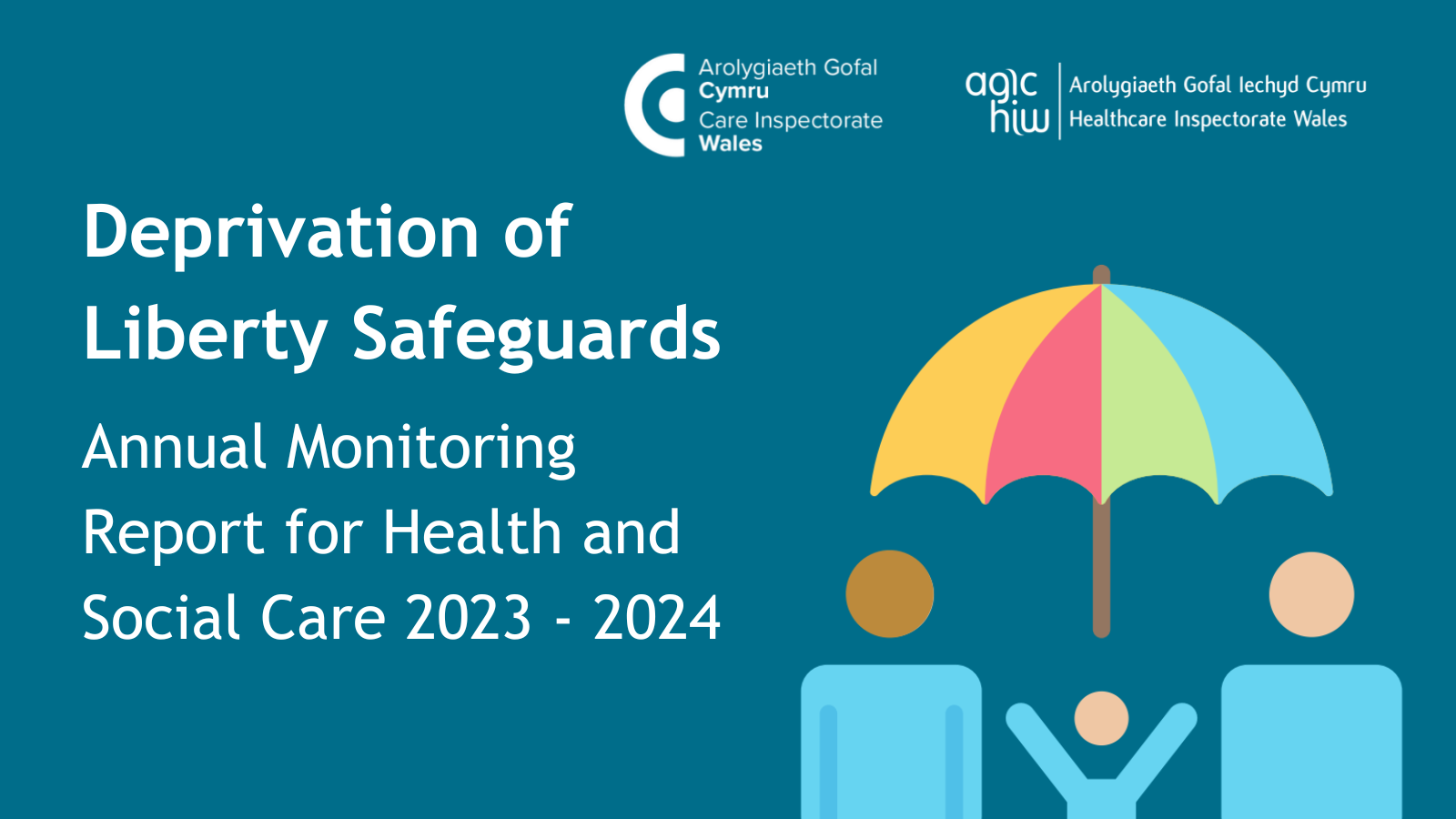Key findings and recommendations of our joint review with Care Inspectorate Wales (CIW).

Together with Care Inspectorate Wales, we have joint responsibility for the monitoring and reporting of DoLS and publish an annual report on the applications received by Health Boards and Local Authorities each year.
The Deprivation of Liberty Safeguards serve as crucial legal protections for some of our most vulnerable citizens. These safeguards exist to protect and maintain the human rights of people who lack mental capacity to make certain decisions about their care and treatment. They ensure all decisions are made in the person's best interests, whilst guaranteeing that any restrictions on their freedom are both appropriate and proportionate.
The safeguards provide a clear legal framework for care homes and hospitals to follow when caring for adults aged 18 and over who cannot consent to their treatment or care arrangements. This framework helps prevent potential breaches of the European Convention on Human Rights.
Key findings
- There was a further 7% (494) increase in the number of applications received by health boards during 2023-24 whilst there was an overall 2% (258) reduction in the number of applications to local authorities.
- Despite the best efforts of local authorities and health boards the data submitted by local authorities and health boards continues to show a high number of people waiting a DoLS assessment experience delays in their application being allocated to an assessor. This leads to delays in completing assessments, delays in authorisations being granted, and possible extended periods of unlawful deprivation.
- The long delays in allocating, assessing and authorising applications continue to result in many people in Wales being deprived of their liberty with no legal protection in place and no opportunity to challenge whilst waiting for a decision to be made.
- There was a 41% (778) increase in the number of applications assessed by health boards in Wales whilst there was a 5% (520) reduction in the number of applications assessed by local authorities.
- The length of time taken by local authorities and health boards to assess the applications must improve, as many applications are not assessed within statutory timeframes.
- Many urgent authorisations continue to expire before the required DoLS assessments can be undertaken. Some local authorities may benefit from reviewing their current procedures for urgent authorisation with managing authorities.
- As reported in previous reports, many local authorities are struggling to allocate the volume of requests received for further authorisations. This again increases the risk of people being deprived of their liberty without the continued protection of the safeguards. All supervisory bodies must ensure people’s rights are protected and assessments for all applications are undertaken within stipulated number of days as set out in Code of Practice.
- The use of conditions by local authorities and health boards varies, with some regions using them more than others. Supervisory Bodes should continue to ensure conditions are used where necessary and are focussed on improving outcomes for people including reducing or removing the deprivation.
- Most people continue to be supported and represented in matters relating to their deprivation of liberty. Supervisory Bodies must continue to ensure a “relevant person’s representative” is appointed for all authorisations.
- The recording of ethnicity must be improved, as currently 22% of local authorities and 16% of the Health Board applications are not recording the ethnicity of the applicant.